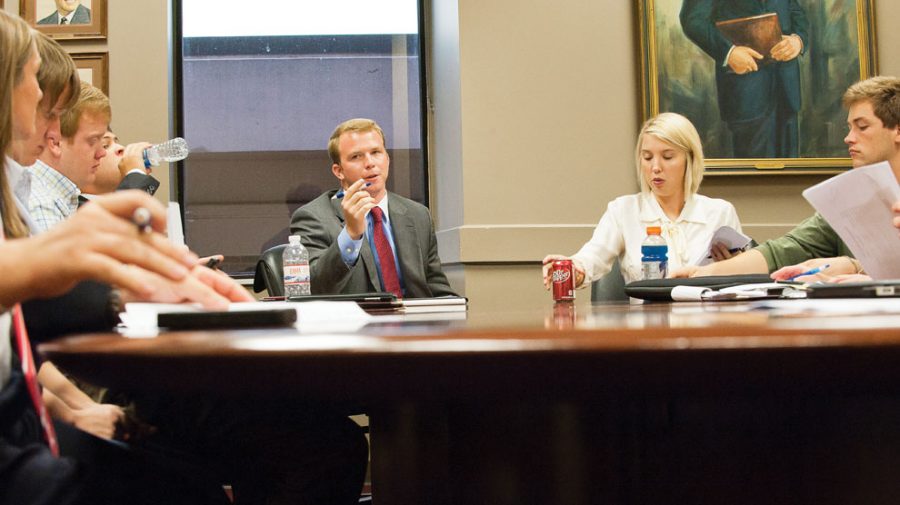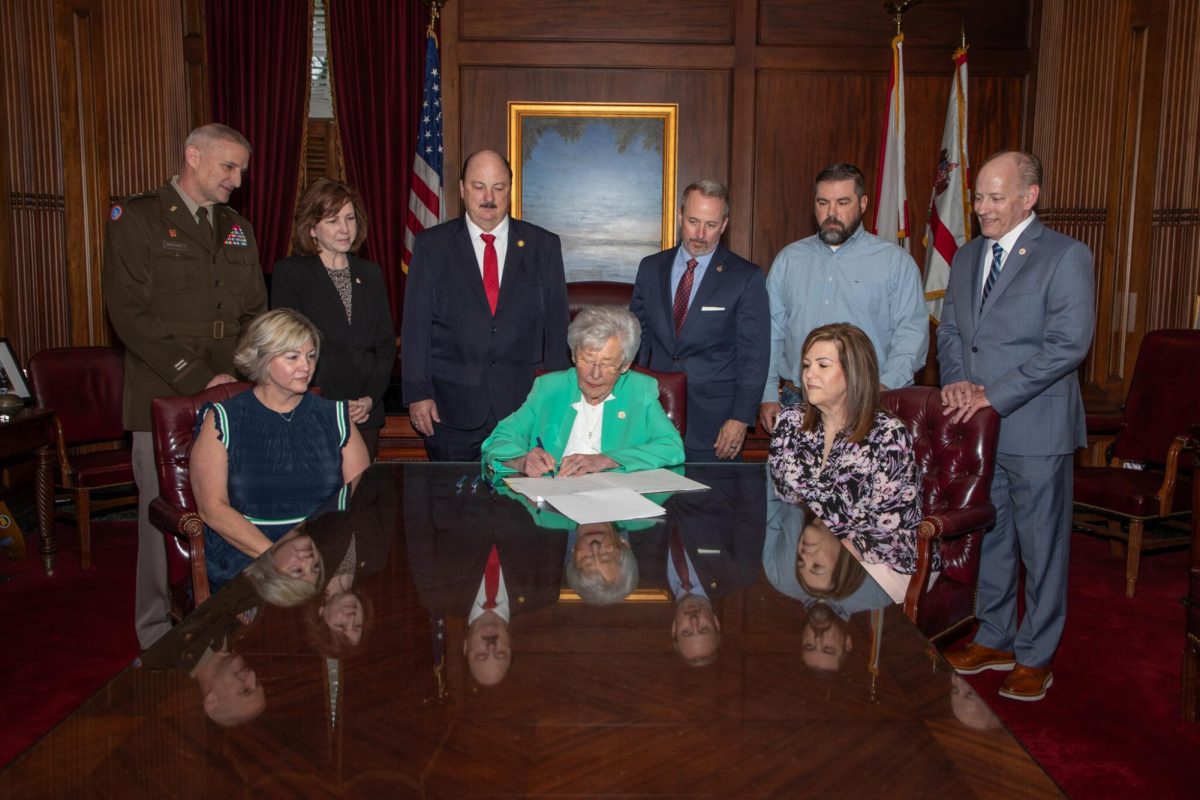Stephen Swinson has confidence, a sensation he said has become lost among the student body when in relation to its Student Government Association.
Sworn into the position of SGA President just one week ago after the abrupt resignation of Grant Cochran, Swinson addressed the deteriorating relationship between the student body and its SGA in his State of the University address Thursday evening in the Ferguson Student Center’s East Dining Hall.
“In the past six months, we have lost focus,” he said. “We lost our commitment to serving all corners of campus. All three branches of the SGA recognize this and all three branches have pledged to recommit themselves to the effort of leaving campus better than it was before we took office.
“My fellow colleagues, the student body has lost confidence in their SGA. It is my goal to reinstate that confidence in the coming months.”
Inclusiveness, transparency and accountability, ideals championed by previous SGA presidents, surfaced in the speech as values to be acted upon and not just talked about.
Swinson’s first approach to inclusiveness is the formation of an advisory board that will confer with him weekly to discuss campus issues, form initiatives and engage the student body.
He wants the board to be comprised of a diverse selection of students from all corners of campus to ensure the student body has adequate representation on the board, he said.
His second approach to inclusiveness is to take SGA members outside of their offices in the Ferguson Student Center to engage the student body.
“The SGA cannot simply rely on the phrase ‘my door is always open’ and expect students to approach their SGA officers,” he said. “In the coming weeks, the SGA will launch our campaign to connect. SGA executives will be seeking out groups on campus and attending their meetings. Our goal is not to inform these groups about what we are doing, but our goal is to listen and engage in conversation. We must take SGA outside the office and find new ways to connect with students.”
Swinson encouraged eager students to apply for the position of SGA Executive Vice President, the position he left upon taking the office of SGA President.
Swinson moved beyond the abstract notions of trust and confidence to discuss what he called the real issues of the campus.
Student organization seating, expanded this year and reserved for student organizations who are awarded seats in the lower bowl of the south end zone, must become more transparent, he said.
“There are currently three Student Organization Seating Task Forces conducting round table discussions about what students feel should be changed concerning student organization seating,” he said. “With these three committees’ input, we will strive to make the appropriate adjustments in order to ensure the process is one that all students have faith in.”
Jeff Elrod, SGA president pro tem of the Senate, said the SGA must be proactive in engaging the student body.
“It’s time for all of us in all three branches to unite,” he said. “We can’t get anything done if we’re not working together.
“We’ve got to reach out. We’ve got to get all areas of campus involved. Like Stephen said, it’s not just about telling them what we do. It’s about making ourselves available to where they feel welcome to come to us.”
Elrod said Cochran’s abrupt resignation has not disrupted the SGA from doing its work.
“We haven’t had much time to think about it,” he said. “Work never stops. Each day we can’t spend too much time thinking about it.”
Ryan Flamerich, SGA speaker of the Senate, said Swinson wants to instill confidence in the student body in respect to its SGA.
“I think the impression Stephen is trying to give is that the SGA needs to win back the trust of the student body, and I think some of the steps he’s already taken within his first days in office are already starting, I hope, to send that message out,” he said.
A new code of ethics will be developed to curtail current and future SGA members from committing dishonorable acts as representatives.
“We’re working with the Attorney General’s office to develop an ethics code in the SGA to outline what it means to be a member of the SGA,” Flamerich said. “Also, the Senate Ethics Committee is looking into ways in which we can ensure such actions won’t happen again within our SGA, whether it be senators or various other members of the SGA.
“Though this is a time that our SGA is working to rebuild the student body’s confidence, I’d like to point out that what has occurred in response to the events that transpired in the previous week, it shows that there are internal forces now within our SGA that hold people accountable. The types of corruption that have been reported in the past won’t happen again no matter who you are, and I think though currently in the SGA we have a perception crisis, when it comes to accountability, it is at an all-time high.”









